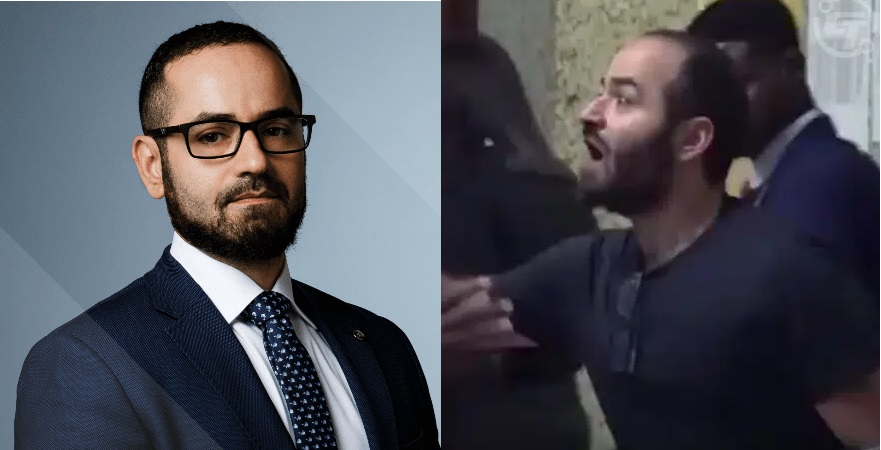The U.S. House Foreign Affairs Committee has passed a resolution calling for the immediate release of Tigran Gambaryan, a high-ranking Binance executive who has been detained in Nigeria for over seven months.
The legislative measure, introduced by Representatives Rich McCormick (R-GA) and French Hill (R-AR), highlights growing concerns about Gambaryan’s health and the legality of his detention.
The resolution is seen as a significant step in ramping up pressure on Nigerian authorities to release Gambaryan, who was taken into custody on charges related to money laundering and tax evasion.
The Background of the Detainment
Tigran Gambaryan, an American citizen and former agent of the U.S. Internal Revenue Service (IRS), has been working as the head of financial crime compliance at Binance.
In February 2024, Gambaryan traveled to Nigeria to engage in discussions related to Binance’s compliance operations and the regulatory landscape in Nigeria. Shortly after arriving, he was arrested by Nigerian authorities.
Another Binance executive, Nardeem Anjarwalla, who was detained alongside Gambaryan, managed to escape using a second passport, but Gambaryan has remained in Nigerian custody since then.
Gambaryan’s detention has led to escalating tensions between the United States and Nigeria, with multiple U.S. officials, including Secretary of State Antony Blinken, calling for his release. Congressman McCormick described Gambaryan as a “hostage” and noted that his health has significantly declined during his detainment.
His medical issues include a herniated disc, multiple bouts of pneumonia, malaria, and throat infections, all of which have been reportedly exacerbated by inadequate medical care at Kuje Prison, where he is currently held.
Efforts and Diplomatic Pressure
In recent months, U.S. diplomats have been pressing Nigerian officials to release Gambaryan, citing humanitarian concerns.
Ambassador Richard Mills and other representatives from the U.S. State Department have met with the Nigerian government, urging them to provide Gambaryan with appropriate medical treatment and due process rights. The lack of response from Nigeria has further strained the bilateral relationship between the two countries.
During a House Foreign Affairs Committee hearing, Congressman McCormick highlighted that Gambaryan’s detention violates international norms and called for the U.S. State Department to designate Gambaryan as being “wrongfully detained,” a classification that could open additional diplomatic avenues for his release.
The resolution, H.Res. 1348, also requests the U.S. State Department to utilize all available resources to secure Gambaryan’s freedom and officially declare his detention wrongful.
Legal and Health Concerns
Nigerian authorities have been accused of detaining Gambaryan without sufficient legal basis, with his lawyers arguing that he is being used as a pawn in broader efforts to exert financial pressure on Binance.
The exchange has faced scrutiny in several countries for alleged non-compliance with financial regulations. While Gambaryan remains behind bars, his legal team has been pushing for his release on bail, citing his deteriorating health.
Reports indicate that during a recent court appearance in September, Gambaryan struggled to walk and appeared visibly weakened.
Implications for US-Nigeria Relations
The detention of Tigran Gambaryan is shaping up to be more than just a legal issue, it’s becoming a geopolitical one. U.S. lawmakers and diplomats have expressed frustration at the Nigerian government’s refusal to address the matter, warning that it could affect future cooperation between the two nations.
Some members of Congress have even gone so far as to suggest that Gambaryan’s detention is an attempt to extort Binance for financial gains. This suggestion has been met with strong denials from Nigerian officials, who maintain that Gambaryan will only be released following a trial.
What Happens Next?
As U.S. diplomats continue to press for Gambaryan’s release, the resolution passed by the House Foreign Affairs Committee is expected to add momentum to their efforts. The resolution demands that Nigerian authorities provide Gambaryan with unrestricted medical care, full consular access, and due process rights until his release.
The outcome of this diplomatic push remains uncertain, but it’s clear that the case of Tigran Gambaryan has already had a significant impact on U.S.-Nigeria relations.
For now, all eyes are on the Nigerian government’s next move and the continued efforts of U.S. lawmakers to secure the release of one of their own citizens caught in the middle of international and financial politics.
